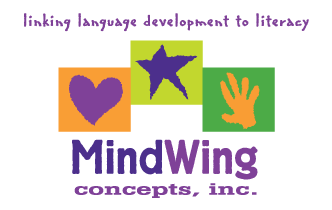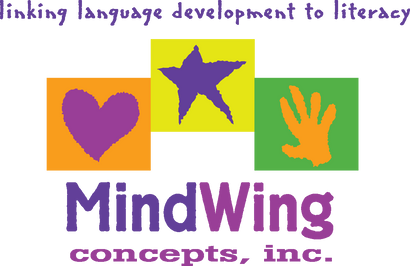Secure Checkout. FREE SHIPPING for Continental U.S. Orders over $60.
Menu
-
- Home
-
About Us
-
The Approach
-
Linking Language & Literacy
-
MindWing Learning
-
Learning Resources
-
SHOP
-
Blog
-
- About MindWing
- Our People
- Contact Us
- Your Account
- Login
-
United States (USD $)

Secure Checkout. FREE SHIPPING for Continental U.S. Orders over $60.
Evaluating the Effectiveness of a Narrative Language Program in Classrooms
by Sheila Moreau January 25, 2018 4 min read
People often ask us how to get Story Grammar Marker® implemented in their school/school district. The following article, re-printed here with permission, describes step by step how, with a supportive administration and engaged teachers and specialists, two Speech Language Pathologists did it!
They even reveal the results of pre- and post-tests of narrative scores for retells. Thank you so much to Miranda and Melissa for having us out to train in Kelowna, British Columbia and for sharing your success story with us!

In the summer of 2016, Melissa Perehudoff and I brought in Maryellen Rooney Moreau (creator of the Story Grammar Marker®) to provide a two-day workshop for Student Support Services-School District #23. We were using the Story Grammar Marker® with many students for language therapy so we were really excited to see her in person.
Furthermore, I got to invite four teachers (from my busiest school) to join the training, thanks to the wonderful administration at George Pringle Elementary. In the fall of 2016, I approached these teachers to see if they were interested in implementing the Story Grammar Marker® in their classrooms. They were interested, and they also agreed to have simple pre- and post-evaluations done with participating students.

Teachers/staff from George Pringle Elementary in West Kelowna who were involved and recently took the course: From left to right, top row: Shannondee Rigby (gr. 2/3 Teacher), Mariam Rajabally (French Immersion Kindergarten Teacher), Jackie Holly (gr. 1/2 Teacher), Miranda O'Donnell (SLP), Charmaine Bell (Resource Teacher), Debbie Dehoog (Literacy Support Teacher). Front row: lady with the scarf Catharine Marrs Patton (gr. 1/2 Teacher), Kaisha Jopling (gr. 1/2 Teacher)
All students in these classes participated in learning this methodology; however, only the students with parental permission had their oral story retell skills assessed. Informal evaluations were completed using a progress monitor from Data Collection and Progress Monitoring Process (Moreau, 2012)1. I used a very quick and simple story book (either ‘Top Dog and the Big Rock’ and ‘Top Dog Grows Strawberries’ by Julia Ramsden) for assessment and I had help from Debbie Dehoog, a support teacher.
Classroom instruction started in January and ended in May. The average instruction time for teachers ranged from 30 to 50 minutes a week, and three of the four classes had around ten structured story retell sessions (with my support). I also worked with students on my caseload in the story retell groups, so I could target specific language goals. Results showed that all the classes made gains. The percent increase in the average narrative scores when using the ‘Progress Monitor and Instructional Planner, Form 2’ (Moreau, 2012) were 44%, 90%, 105%, and 177%.


Top photo: Suzanna Dojohn (Kindergarten Teacher) holding Braidy, from the Story Grammar Marker®. Bottom photo: From left to right: Sarah Konte (gr. 3/4 Teacher), Shannondee Rigby (gr. 2/3 Teacher), Miranda O'Donnell (SLP).
More teachers became interested in the Story Grammar Marker®, so in May of 2017, Melissa Perehudoff and I attended an intensive three-day training for SGM Certification Module 1 and Integrating Technology Tools.
Next, we put together our own workshop for these interested teachers. We were happy to have 15 people at our workshop including classroom teachers, learning disabilities teachers, learning assistance teachers, an SLP, and a psychologist.
This year, more teachers and other professionals from our schools are using the Story Grammar Marker®. The project results were shared with a variety of schools and the administrators were very open to purchasing the materials for classes. This is inspiring to us because our students with language difficulties will likely be getting language input and strategies more regularly, as opposed to 30 minutes a week (during speech and language therapy sessions). The teachers also appeared to enjoy the writing portion of the Story Grammar Marker®. Connecting oral language to written language only makes sense, after all. Having strong oral narrative language is so integral to skills such as social interaction, reading/oral comprehension, and story writing. Furthermore, every student benefits. The Story Grammar Marker® really connects you to the classroom. Maryellen is our hero!



Left: Jennifer Kruiswyk is a Learning Disabilities Teacher in West Kelowna who started using SGM methodology with her students after seeing Maryellen at the Kelowna workshop. / Center: Melissa Perehudoff is an SLP in West Kelowna. She has been using SGM methodology for many years. She introduced our SLP department to the Story Grammar Marker® and helped teach the course with me last summer in August 2017. / Right: Allison Meynell is a kindergarten teacher in Kelowna and was a grade 1/2 teacher when involved with the data collection project.
In the future, if I wanted to collect some data, I would scale it back, as being involved with four classes was very time consuming and was definitely not built into my FTE. In the end, I’m happy with this whole experience. It taught me a lot, and I was left feeling inspired.
Please contact me if you want any detailed information regarding the project results. Melissa and I hope to continue providing workshops in the summer and supporting our teachers with this methodology at our schools.
Miranda O’Donnell M.Sc., RSLP, SLP (C)
Speech-Language Pathologist
School District #23
miranda.odonnell@sd23.bc.ca

Ogopogo-Kelowna Workshop Group, August 2016
Left to right: Janine Lebeter (SLP), Miranda O'Donnell (SLP), Melody Kozoway (SLP), Maryellen, Sheila, Melissa Perehudoff (SLP), Nancy Smith (SLP), Giselle Maier (SLP)
1 Moreau, M.R. (2012). Data Collection & Progress Monitoring Process: Linking MindWing’s Tools to the Teaching-Learning Cycle
Sheila Moreau
Sheila M. Moreau, M.Ed. is vice president at MindWing Concepts. Her Bachelor’s degree in Psychology is from St. Anselm College and Master’s of Education degree from Cambridge College. Sheila has twenty years of experience in marketing and sales in the telecommunications, commercial real estate, fundraising and educational publishing industries. Sheila co-authored The Essential SGM® with Maryellen Moreau, drawing upon her experience in her graduate studies. Sheila was on the Early Literacy Advisory Board of Cherish Every Child (Irene E. and George A. Davis Foundation),; she sits on the Board of Directors for the International VolleyBall Hall of Fame and serves as Co-Chair of Marketing and Sponsorship for the St. Patrick’s Committee of Holyoke, Inc.
Leave a comment.
Comments will be approved before showing up.
